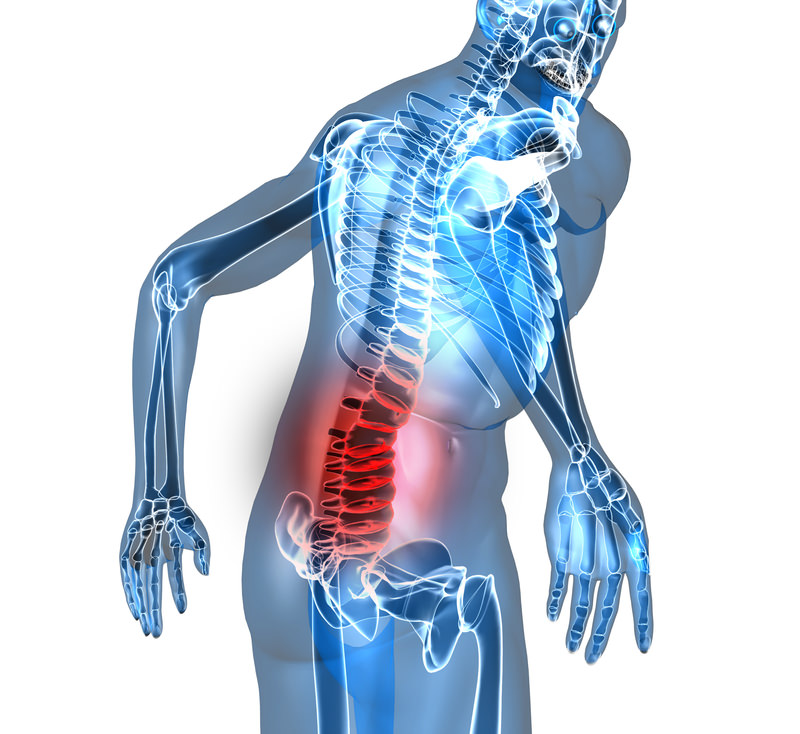Degenerative Disc Disease
A common cause of low back pain, degenerative disc disease (DDD) is the term used to describe a set of symptoms related to wear and tear affecting the spongy discs supporting the spine. Surgery is rarely an option unless nerve compression has resulted in serious complications. Many patients respond well to a combination of pain management options.
Causes and Contributing Factors
A normal part of the aging process, disc degenerative usually only produces noticeable symptoms when weakened spinal discs become damaged and compress nerves. Often affecting the neck or lower spine, the condition can hasten the development of osteoarthritis of the spine, contribute to disc herniation, or cause one disc to slip forward onto the adjacent one (spondylolisthesis). Contributing factors can include excess weight, poor diet, and repetitive activities.
Degenerative Disc Disease Symptoms
Symptoms related to DDD can vary, depending on which nerve is compressed. If the sciatic nerve is involved or other nerves become sensitized with inflammation, pain may radiate to the hips, buttocks, or legs. Patients can experience difficulty walking or feel numbness or a tingling sensation. Pain may also be felt in the neck (cervical degenerative disc disease), centered in the middle of the back or lower spine, or become worse when sitting as added pressure is placed on the affected areas of the spine.
Treating Degenerative Disc Disease
Since anywhere from 90 to 95 percent of patients with DDD find relief with non-surgical remedies, pain management often helps control or alleviate discomfort from related symptoms. Physical therapy, in particular, can strengthen muscles, tendons, and ligaments with exercises tailored to match capabilities. Medication can reduce inflammation and minimize pain, although stronger pain meds should only be used for a short period of time.
Fine-Tuning Pain Management Efforts
Patients can play a role in fine-tuning their treatment by describing when their pain occurs most or what activities or movements seem to trigger it. A good way to do this is to keep a journal or diary. Pain management efforts are further personalized with image tests to confirm or rule out related conditions.
Some people experience little or no pain associated with degenerative disc disease. When symptoms result in recurring pain, a pain management specialist can recommend steps that can be taken to minimize discomfort and reduce the risk of experiencing worsening pain, such as dietary and lifestyle adjustments and the modification of movements likely to increase pressure on muscles, joints, and nerves.
Contact our office today to schedule an appointment with Allied Pain & Spine Institute.



